How To Meditate Properly
For Beginners
So many people find it really difficult to meditate properly. And much of the information out there is actually wrong. In this short course, we will learn an ancient Vedic technique to help you get into meditation more easily.
90-95% Of All Disease And Illness Is Caused By Stress
Meditation Is Ancient
Our Ancestors Knew This. Many forms of meditation are cherry-picked from what our ancestors taught us. How about going back to the source and learning how to meditate properly.
It will make more sense to you as you become more confident in meditation and what you actually have to do with it.


Why Learn To Meditate Properly?
When we begin to realise the way we live is a complete contradiction to a healthy life, we will start to do something about it.
Learning to meditate properly will be an amazing start. And you can do this quite easily.
Because of the bombardment of information presented to us everyday, we all find it hard to take a moment for ourselves.
But when you do, you will really feel the difference. And this is all about how your body is, and sensitising your brain and your mind to your body.
1 Key Benefit To Meditation
The way we live today is like a low level stressed out state. Some stress is good for the body, but the stress we feel is rather like our ancestors felt when they were stressed by starvation.
Our brains have not evolved from that time, so we are feeling that stress as if we are starving. A constant low level of stress is very bad for your body.
Learning to reset the nervous system by coming out of that stressed state will really do you so much good. And you will start to feel the benefits straight away. Meditation will do this for you.

Let Stress - Anxiety - Overwhelm
Be A Thing Of The Past
And Learn To Put The Fire Out Inside
Sign Up Today For Your Free Course

Meditation Is Not A Chore
Meditation should not be a chore like washing the dishes. It should be a rejuvenating, wonderful experience you want to come back to again and again.
When we get used to coming into that quiet place of meditation, we will begin to realise that this is an amazing place to be.
If you are not enjoying your meditation experience at the moment, it may be because you are not meditating properly. And not sure why you are meditating.
After this course, your meditation practise will never be the same.
You will break the myths that have been built up about meditation. And you will start to break free of the negative energy inside.
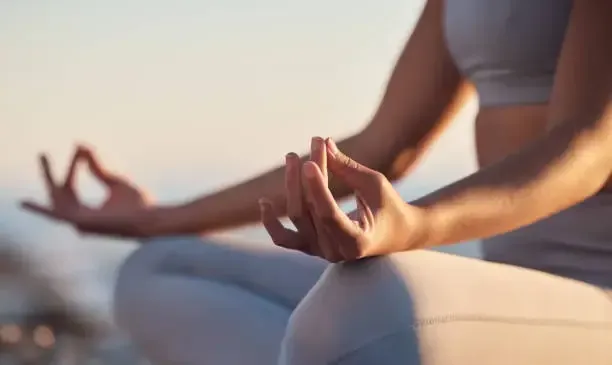
Meditation Is Not Like This
Meditation is not sitting in a lotus or half lotus position. Although it is possible to meditate in this position but not necessary.
Meditation is not clearing your mind. This is almost impossible for beginners because the mind is designed to move. It is focusing the mind, not clearing it.
Meditation is not really about just observing your thoughts either. Observing your thoughts is an enlightened state to be in. And it is easier when you have meditated for a while.
But to do this as a beginner, it is almost impossible.
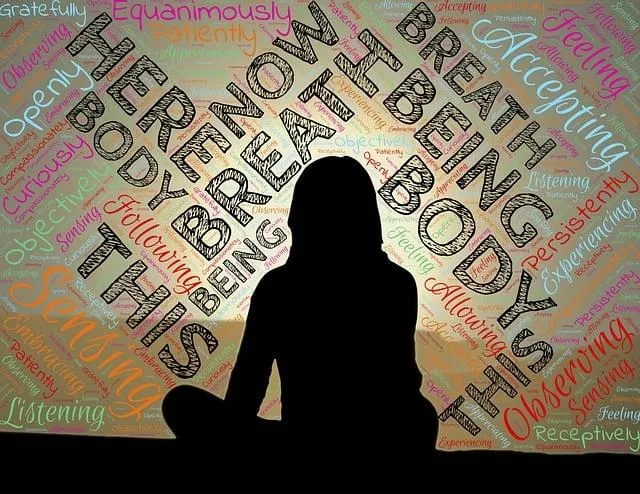
Meditation Is More Like This
Meditation is a very complex spiritual practise which covers many different aspects. It was first mentioned in the Puranas, which are the ancient texts from India.
The practise has been going on for thousands of years, and has a process to it.
To think you can just sit down, get in a half lotus position, close your eyes and then think you are meditating is missing the point really.
But you can build up to an amazing spiritual practise with meditation if you start in the right way.
This short course will give you that knowledge.
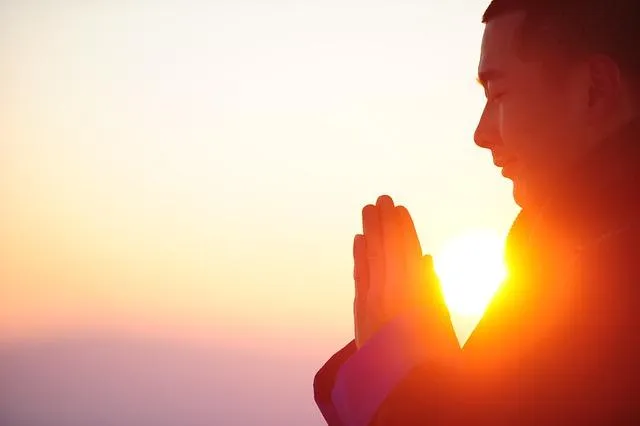
Mind Body Spirit Alignment
Meditation is about aligning your mind, body and spirit. And this will not happen overnight for most people.
It is something that needs to be worked up to. Starting with a very simple practise will actually help you get closer to your goals than just jumping in at the deep end.
Anyone can get into meditation if they set their mind to it. And it is that power of intention you must cultivate to become successful at meditation.
The benefits are so amazing it is really worth the effort.
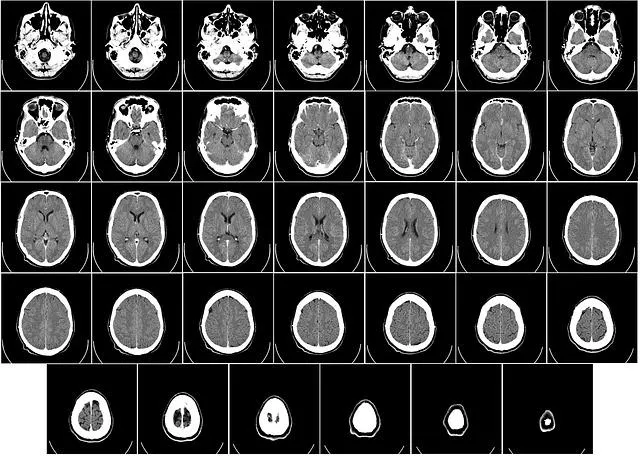
Meditation Is Scientifically Proven To Work For You
Increases Immune Cell Count
Increases Life Satisfaction
Decreases Stress By Over 50%
Increases Your Longevity
Increases Your Health And Well Being
Decreases Your Anxiety
Decreases Your Depression
Your mind and brain will drastically change through a regular practise of meditation also. Your brain will start changing its frequency by regularly meditating. And you will feel that effect quite quickly.
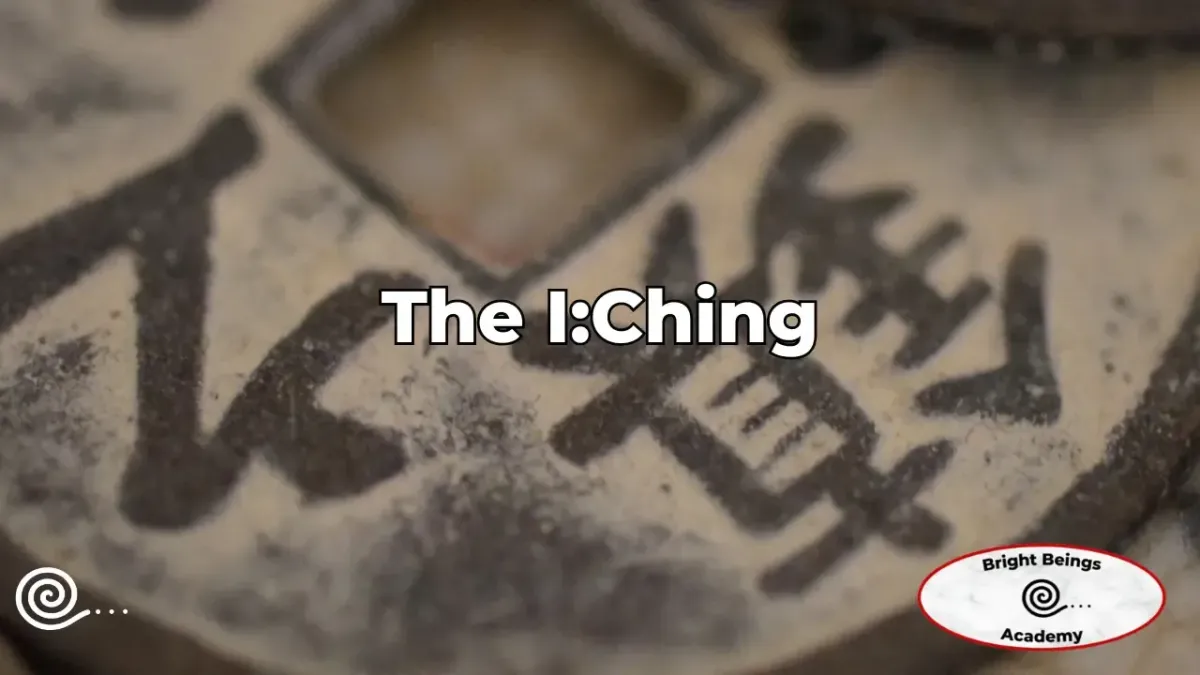
Contemplation Meditation
Contemplation meditation is a powerful practice that bridges the creative and analytical capacities of the mind by harmonising the brain's two hemispheres.
The right brain, known for its openness to imagination,
intuition, and creativity, complements the left brain's focus on logic, structure, and problem-solving.
When these two aspects are consciously brought together in meditation, it creates a state of deep contemplation—a balanced space where insight and
understanding flow freely.
This practice, rooted in ancient traditions such as the I Ching, encourages meditators to engage both intuition and reason, enabling profound clarity and wisdom.
Through this integrative approach, contemplation meditation allows practitioners to access new perspectives, merge creativity with analysis, and connect with a deeper sense of purpose and harmony.
This is where we want to be with meditation and is quite advanced. It is always good to have a destination when you start a new practise. And the exercises in this mini course will give you the guidance on how to reach this beautiful place of contemplation.
How to Meditate Properly: A Beginner’s Guide
Meditation is one of the most transformative practices you can bring into your life. Whether you’re looking for easy meditation techniques for beginners, seeking the best meditation practices for stress relief, or simply wanting to learn how to calm the mind through meditation, this guide will walk you through the essentials of starting your journey.
Why Meditation Matters
Life today can be overwhelming. With constant demands from work, family, and the digital world, it’s no wonder so many people feel stressed and disconnected. Meditation offers a way to pause, reset, and reconnect with yourself. By committing to a regular practice, even just for a few minutes a day, you can experience reduced stress, improved focus, and greater emotional balance.
If you’re new to meditation, you might feel unsure where to start or wonder if you’re “doing it right.” The truth is, meditation isn’t about perfection—it’s about showing up with intention and openness.
Life today can be overwhelming. With constant demands from work, family, and the digital world, it’s no wonder so many people feel stressed and disconnected. Meditation offers a way to pause, reset, and reconnect with yourself. By committing to a regular practice, even just for a few minutes a day, you can experience reduced stress, improved focus, and greater emotional balance.
If you’re new to meditation, you might feel unsure where to start or wonder if you’re “doing it right.” The truth is, meditation isn’t about perfection—it’s about showing up with intention and openness.
Easy Meditation Techniques for Beginners
Focusing On Breath
One of the simplest and most effective methods to start with is breath awareness. This technique helps you cultivate presence and is often considered one of the best meditation practices for stress relief because it naturally calms the nervous system. Here’s how:
Find a quiet, comfortable space where you won’t be interrupted.
Sit in a chair or on the floor, keeping your back straight but relaxed.
Close your eyes and take a few deep breaths to settle in.
Begin to notice the natural rhythm of your breath—how it feels as you inhale and exhale.
If your mind wanders, gently bring your focus back to your breathing.
Using Guided Meditation for Beginners
For those who find it difficult to meditate alone, the meditations in the mini course are all guided. These sessions involve listening to a teacher that provides step-by-step instructions. Guided meditations often include visualisations or affirmations that make it easier to stay focused. But we keep it simple to start with this mini course.
This mini course is designed to make meditation simple, enjoyable, and effective, helping you build confidence as you learn.
How to Calm the Mind Through Meditation
One of the most common challenges for beginners is a restless mind. You sit down to meditate, only to find your thoughts racing in all directions. This is completely normal! Meditation isn’t about stopping your thoughts—it’s about changing your relationship with them.
Here are some tips to calm the mind:
Acknowledge your thoughts: Instead of fighting your mental chatter, notice it and let it pass like clouds in the sky.
Use a mantra: Repeating a word or phrase, such as “peace” or “I am calm,” can anchor your focus.
Try body scan meditation: Bring awareness to each part of your body, releasing tension as you go. This technique is especially helpful for relaxation and grounding.
Best Meditation Practices for Stress Relief
Meditation is one of the most effective tools for managing stress. Here are some tried-and-true techniques:
Mindfulness Meditation: Focus on the present moment without judgment. Whether you’re eating, walking, or simply breathing, mindfulness keeps you grounded.
Loving-Kindness Meditation: Cultivate compassion by sending positive thoughts to yourself and others. This practice can be deeply soothing, especially during times of tension.
Walking Meditation: For those who struggle with sitting still, walking meditation combines gentle movement with mindful awareness, helping to reduce stress while staying active.
Join the Bright Beings Academy’s Free Meditation Mini-Course
If you’re ready to explore meditation in a way that’s easy, effective, and enjoyable, the Bright Beings Academy is here to guide you. Our free meditation mini-course is perfect for beginners, offering practical tools to help you establish a calming routine.
In this course, you’ll learn ancient Vedic techniques that simplify meditation, debunk common myths, and show you how to integrate mindfulness into daily life. Whether you’re aiming to reduce stress, find balance, or simply discover the joy of meditation, this course is your gateway to a more peaceful you.
Sign up today and start your journey towards greater clarity, relaxation, and self-awareness. Your mind, body, and spirit will thank you. Click the button below to begin your free course.
Start Today And Feel The Change

Make Meditation Easy With This Mini Course
Meditation doesn’t have to be complicated. By starting small and staying consistent, you can unlock its incredible benefits. Ready to begin? Explore our mini-course and let us help you build a practice that fits your life.
Bright Beings Academy
For Self Realisation
Frequently Asked Questions On Meditation
What is meditation, and why is it beneficial?
Meditation is a practice that involves focusing your mind to achieve a state of mental clarity, emotional calm, and inner peace. Benefits of meditation include reduced stress, improved focus, better emotional health, and enhanced self-awareness. Regular meditation can also improve sleep, boost creativity, and support overall well-being.
How do I start meditating as a beginner?
Starting meditation is simple:Find a quiet, comfortable space. Sit in a relaxed position with your back straight. Close your eyes and focus on your breath, a mantra, or a guided meditation. Start with just 5–10 minutes a day and gradually increase the duration as you feel comfortable.
What should I do if my mind keeps wandering?
It’s normal for your mind to wander during meditation, especially as a beginner. When you notice this happening, gently bring your focus back to your breath or your chosen point of focus. Over time, your ability to stay present will improve. Be patient and avoid judging yourself—this is all part of the process.
How often should I meditate to see benefits?
Consistency is key. Meditating for as little as 5–10 minutes daily can lead to noticeable benefits over time. If possible, aim for 20 minutes or more once you’re comfortable. The most important thing is to find a routine that works for you and stick with it.
What are some common types of meditation I can try?
There are many types of meditation to explore, including:Mindfulness meditation: Focusing on the present moment.
Guided meditation: Following audio or video instructions.
Loving-kindness meditation: Cultivating compassion for yourself and others.
Mantra meditation: Repeating a word or phrase for focus.
Body scan meditation: Bringing awareness to different parts of the body.
Experiment with different techniques to find what resonates with you.
Do I need a teacher to meditate?
While you can meditate on your own, having a teacher or guide can be helpful, especially for beginners. A teacher can provide guidance, correct misconceptions, and tailor techniques to your needs. Bright Beings Academy offers a free meditation mini-course designed to make learning meditation easy and enjoyable.
Can meditation help with stress and anxiety?
Yes, meditation is one of the most effective tools for managing stress and anxiety. By calming the mind and activating the body’s relaxation response, meditation reduces cortisol levels, slows the heart rate, and fosters a sense of inner peace. Techniques like mindfulness, breathwork, and loving-kindness meditation are particularly beneficial for stress relief.
What is the best time to meditate?
The best time to meditate is whenever it fits into your schedule. Many people prefer morning meditation to start the day with focus and calmness, while others find evening meditation helps them unwind before bed. Choose a time that feels natural and sustainable for you.
Do I need to clear my mind completely to meditate?
No, the idea that you need to "empty your mind" is a common misconception. Meditation isn’t about stopping your thoughts—it’s about observing them without judgment and gently returning to your point of focus. Over time, this practice helps quiet mental chatter naturally.
How long does it take to see results from meditation?
Some benefits, like a sense of calm and relaxation, can be felt immediately after a session. However, long-term benefits like reduced stress, improved focus, and emotional resilience often take weeks or months of consistent practice. Stick with it, and you’ll see meaningful changes.
Meditation is a journey, not a destination. If you're ready to start, explore the free meditation mini-course at Bright Beings Academy to gain the guidance and tools you need to make meditation an enriching part of your daily life.
Our Vision At The Bright Beings Academy
We envisage a diverse global community of people who have connected to their inner wisdom, vision and intuition and who are willing to collaborate towards a balanced and productive world of abundance. To embrace systems that serve humanity and encourage the insight and courage to let go of any systems that do not. Allow space to express their multi-facetted and multi-dimensional experience which is aligned to their personal profound purpose coherently. Inspire everyone to move away from self-harm and self-doubt to self-healing and self-realisation.
Copyright Peter Paul Parker All Rights Reserved - Terms and conditions Privacy Support
